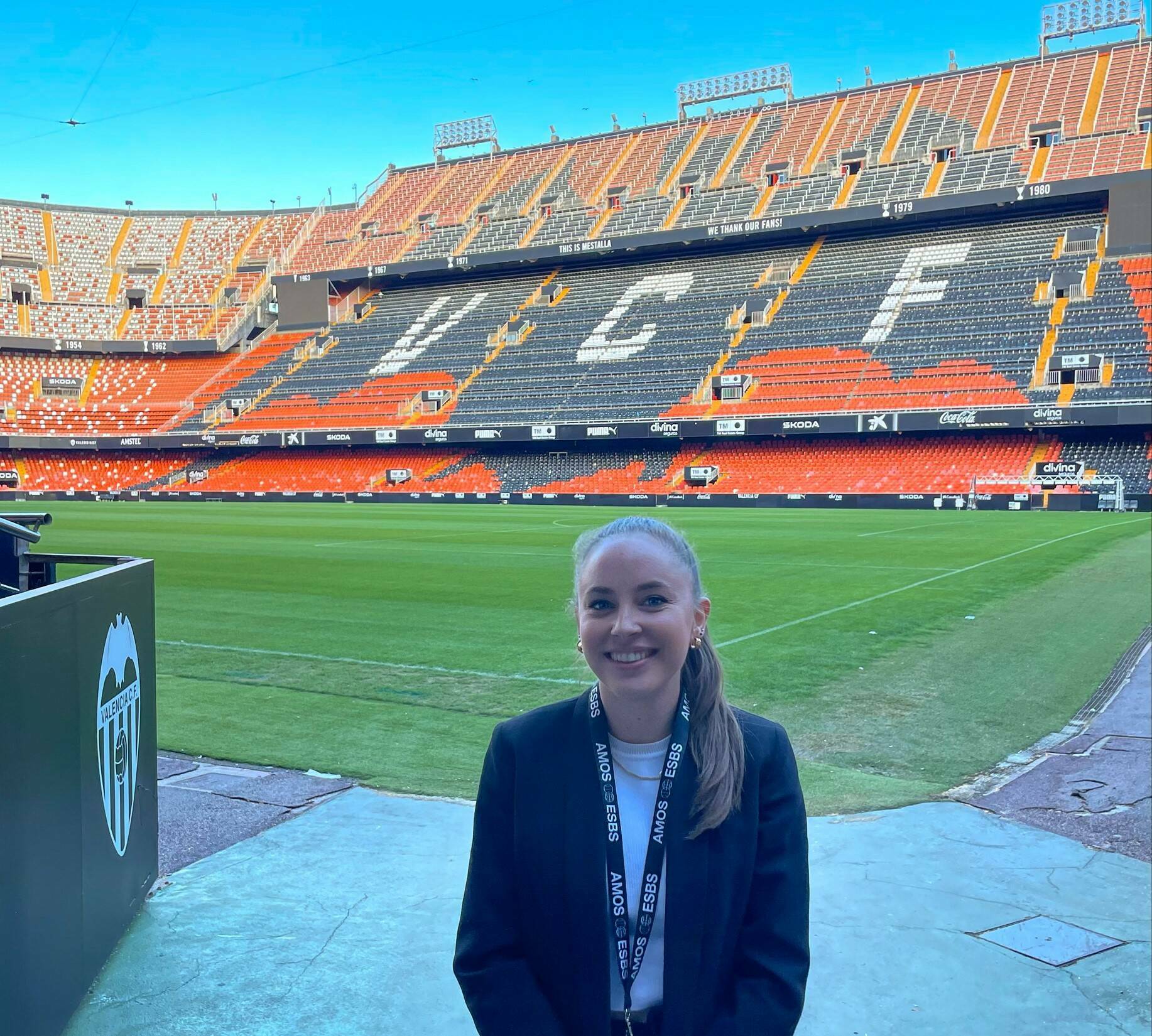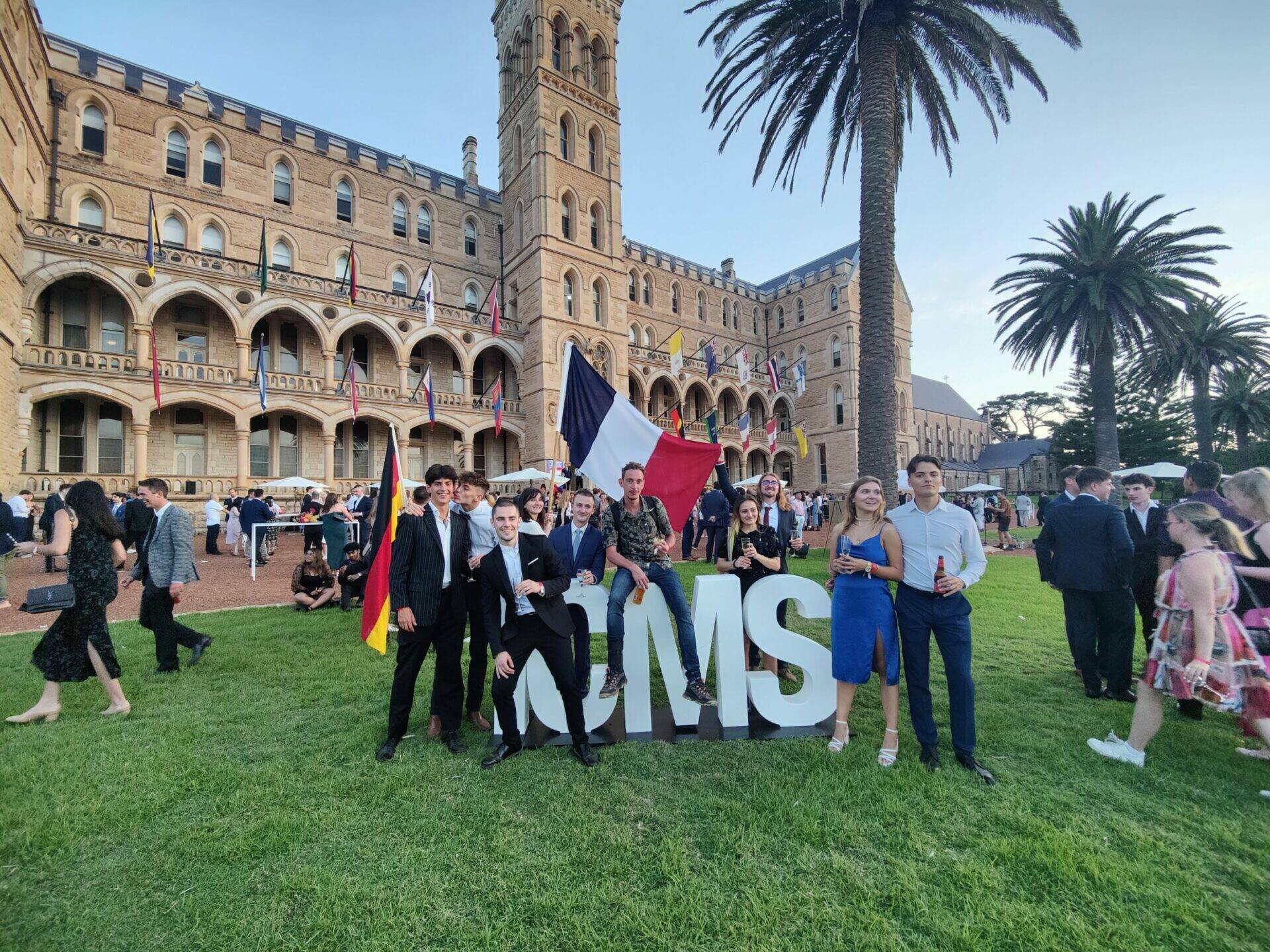Communication Director
HOW TO BECOME A COMMUNICATION DIRECTOR
The sports industry is now a true business sector. Nowadays, it is referred to as sports business. A number of so-called traditional jobs have started specializing in this market, a market with specific features. The communication director career is a perfect example of this. A key position in the corporate world in general, it fills the same role for major sports brands as for sports clubs and leagues.
How is the sports industry doing?
This is one of the major industries globally. It is said to be worth between $800 and $900 billion globally every year with almost $38 billion in France alone all businesses included. In fact, it is a vast industry that includes sports equipment, specialist media, clubs, federations, non-profits, stadiums, specialist retailers, sports holiday operators, sports halls, etc.
For example, the financial health of sports clubs relies heavily on TV rights. Another way to attract new audiences or to create a buzz is to have an efficient communication strategy. New business models for young stadiums rely on this tool. Communication directors work in a saturated and highly competitive market and must act accordingly.
What are the duties of a communication director?
Communication directors have extensive knowledge of the sports industry and the current market, as well as general business management skills. They rely on these two skills to perform their job, as well as on their experience and the policy defined by the club’s, organization’s or sports brand’s DG or CEO.
As head of a large team, they coordinate the different stakeholders and oversee various ongoing campaigns. In other words, they act as project managers. Their team includes departments specializing in the various communication media they manage: press relations, social networks, internal communication, etc. They manage a given budget and are responsible for the proper monitoring of communication expenses.
They work closely with the company’s other key departments, specifically with the marketing director to implement a global strategy and communication plan. In many cases, communication directors have both a marketing and communication background. They also work with external parties such as sponsors, sports organizations, the media, etc.
Whenever a sporting event is organized and during the event itself, they are there to see to proper communication on social media and in the stadium, and to make sure that sponsors are well represented. They work closely with stadium managers.
Their work directly reflects on the company’s image. They are accountable for the company’s positioning and must comply with it. They are also in charge of public relations. Their job consists in asserting their company’s position vis-à-vis its many competitors.
A communication director’s main objective is ROI by attracting new customers or supporters. To achieve this, they implement innovative and strategic tools. Social networks are key as they help build a close bond with supporters or customers, and this is essential to retain and attract new customers as well as to develop brand image.
What are the required qualities for this role?
Communication directors are team managers and must demonstrate the following key qualities:
- Ability to work under pressure: they are typically employed by large clubs or organizations with high expectations. Communication directors must be constantly operational to withstand relentless pressure from the competition, management and supporters. In the event of a problem, they must react fast and initiate emergency crisis communication.
- Show leadership skills as this role comes with many responsibilities. They must be able to assert their ideas and lead their team with an iron fist. Organizational skills are highly recommended. They must nonetheless demonstrate good interpersonal skills to communicate with other parties.
- Analytical skills: communication involves a great deal of reflection and analysis. In a highly competitive environment, communication directors must understand and anticipate the expectations of the public, their management and the market, in order to come up with the right solutions.
- An innovative mind: they are expected to ensure the company gets attention (always in a positive sense) and must therefore be capable of suggesting creative communication actions that will make a difference.
Salary range and career prospects.
As communication specialists, they can expect to earn between €80K and €100K gross per annum, i.e., €7K net per month on average. Salary varies depending on experience and the club or organization that employs them.
Communication directors who work for sports club may transition to larger national clubs. They can switch to a new environment and join a major sports brand, thanks to their perfect knowledge of the market, or work for a top-level athlete.
They may also transition to a different department such as marketing or sponsorship, as their role also implies significant experience in these fields.
What are the qualifications required to become a communication director?
We strongly recommend that you have a 5-year university degree. A 5-year Master’s degree or Grande Ecole program in Sport Management enables you to understand the specificities of the sports market and develop skills in marketing, management, communication and management at a school like AMOS.
English remains an asset, particularly in the world of global sports. What’s more, Anglo-Saxon countries are more advanced in sport business than France. An international curriculum will give you a high level of English as well as knowledge of the international market. Experience abroad will always be a plus on your CV, given the internationalization of the sport business.
This is one of the major industries globally. It is said to be worth between $800 and $900 billion globally every year with almost $38 billion in France alone all businesses included. In fact, it is a vast industry that includes sports equipment, specialist media, clubs, federations, non-profits, stadiums, specialist retailers, sports holiday operators, sports halls, etc.
For example, the financial health of sports clubs relies heavily on TV rights. Another way to attract new audiences or to create a buzz is to have an efficient communication strategy. New business models for young stadiums rely on this tool. Communication directors work in a saturated and highly competitive market and must act accordingly.
Communication directors have extensive knowledge of the sports industry and the current market, as well as general business management skills. They rely on these two skills to perform their job, as well as on their experience and the policy defined by the club’s, organization’s or sports brand’s DG or CEO.
As head of a large team, they coordinate the different stakeholders and oversee various ongoing campaigns. In other words, they act as project managers. Their team includes departments specializing in the various communication media they manage: press relations, social networks, internal communication, etc. They manage a given budget and are responsible for the proper monitoring of communication expenses.
They work closely with the company’s other key departments, specifically with the marketing director to implement a global strategy and communication plan. In many cases, communication directors have both a marketing and communication background. They also work with external parties such as sponsors, sports organizations, the media, etc.
Whenever a sporting event is organized and during the event itself, they are there to see to proper communication on social media and in the stadium, and to make sure that sponsors are well represented. They work closely with stadium managers.
Their work directly reflects on the company’s image. They are accountable for the company’s positioning and must comply with it. They are also in charge of public relations. Their job consists in asserting their company’s position vis-à-vis its many competitors.
A communication director’s main objective is ROI by attracting new customers or supporters. To achieve this, they implement innovative and strategic tools. Social networks are key as they help build a close bond with supporters or customers, and this is essential to retain and attract new customers as well as to develop brand image.
Communication directors are team managers and must demonstrate the following key qualities:
- Ability to work under pressure: they are typically employed by large clubs or organizations with high expectations. Communication directors must be constantly operational to withstand relentless pressure from the competition, management and supporters. In the event of a problem, they must react fast and initiate emergency crisis communication.
- Show leadership skills as this role comes with many responsibilities. They must be able to assert their ideas and lead their team with an iron fist. Organizational skills are highly recommended. They must nonetheless demonstrate good interpersonal skills to communicate with other parties.
- Analytical skills: communication involves a great deal of reflection and analysis. In a highly competitive environment, communication directors must understand and anticipate the expectations of the public, their management and the market, in order to come up with the right solutions.
- An innovative mind: they are expected to ensure the company gets attention (always in a positive sense) and must therefore be capable of suggesting creative communication actions that will make a difference.
As communication specialists, they can expect to earn between €80K and €100K gross per annum, i.e., €7K net per month on average. Salary varies depending on experience and the club or organization that employs them.
Communication directors who work for sports club may transition to larger national clubs. They can switch to a new environment and join a major sports brand, thanks to their perfect knowledge of the market, or work for a top-level athlete.
They may also transition to a different department such as marketing or sponsorship, as their role also implies significant experience in these fields.
We strongly recommend that you have a 5-year university degree. A 5-year Master’s degree or Grande Ecole program in Sport Management enables you to understand the specificities of the sports market and develop skills in marketing, management, communication and management at a school like AMOS.
English remains an asset, particularly in the world of global sports. What’s more, Anglo-Saxon countries are more advanced in sport business than France. An international curriculum will give you a high level of English as well as knowledge of the international market. Experience abroad will always be a plus on your CV, given the internationalization of the sport business.






